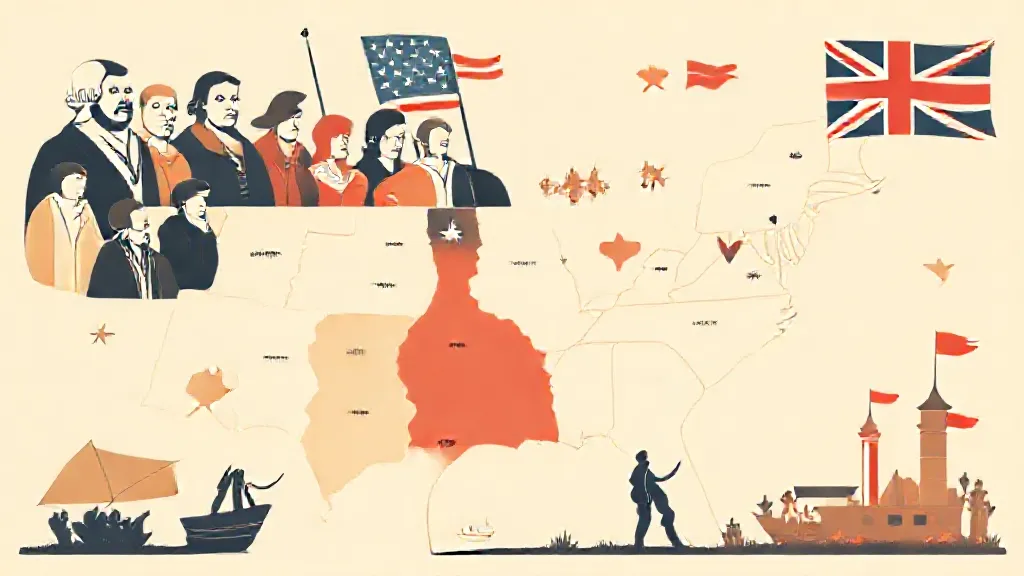The unification of the American colonies in the lead-up to the Revolutionary War was a complex process influenced by a multitude of factors. The colonies, originally established for various economic, religious, and political reasons, began to see the necessity of cooperation as tensions with British rule escalated. Understanding why the American colonies united requires an exploration of both the historical context and the specific events that catalyzed this unprecedented collaboration.
Historical Context of Colonial America
The American colonies were established between the early 17th century and the late 18th century, each with its own unique identity. The New England colonies, for instance, were heavily influenced by Puritan beliefs, while the Southern colonies developed a plantation economy reliant on enslaved labor. Despite their differences, these colonies shared common grievances against British policies, which began to erode their autonomy and economic interests.
The growing sentiment of a shared identity among the colonies was essential for fostering unity.
The Impact of the French and Indian War
The French and Indian War (1754-1763) significantly altered the relationship between Britain and its American colonies. Following the war, Britain found itself in substantial debt and sought to recoup its losses through increased taxation of the colonies.
The imposition of taxes, such as the Stamp Act of 1765 and the Townshend Acts of 1767, ignited widespread protests. Colonists began to rally around the idea of "no taxation without representation," which emphasized their desire for a say in the legislative processes that affected their lives and livelihoods.
Emergence of Colonial Organizations
In response to British policies, colonists began to form organizations that would promote unity and resistance.
The formation of the Sons of Liberty in 1765 and the Committees of Correspondence in the early 1770s were pivotal in fostering communication and coordination among the colonies. These groups organized protests, disseminated information, and built a sense of collective identity, which proved essential in the colonies' ability to unite against a common adversary.
The Role of Key Events in Fostering Unity
Several key events served as catalysts for colonial unity.
The Boston Massacre in 1770, where British soldiers killed five colonists during a confrontation, was widely publicized and used as propaganda to galvanize anti-British sentiment. Similarly, the Boston Tea Party in 1773, where colonists dumped tea into Boston Harbor as a protest against the Tea Act, demonstrated the colonies' willingness to take direct action against British authority. These events underscored the growing belief that the colonies needed to stand together to protect their rights.
The First Continental Congress
The culmination of colonial grievances and the desire for unity led to the convening of the First Continental Congress in September 1774. Delegates from twelve of the thirteen colonies gathered in Philadelphia to discuss their response to British policies. The Congress produced the Declaration of Rights and Grievances, which asserted the colonies' rights while still expressing loyalty to the Crown.
This marked a significant step toward collective action and laid the groundwork for future cooperation among the colonies.
The Influence of Enlightenment Ideas
The intellectual climate of the time also played a crucial role in fostering unity among the colonies. Enlightenment thinkers like John Locke and Montesquieu influenced colonial leaders, promoting ideas of individual rights, government by consent, and the separation of powers.
These concepts resonated with colonists who felt their rights were being infringed upon. The widespread dissemination of these ideas through pamphlets and discussions helped unify the colonies under a shared philosophical framework that supported their quest for independence.
The Declaration of Independence as a Unifying Document
By 1776, the desire for unity had reached its peak, culminating in the drafting of the Declaration of Independence.
This document not only articulated the colonies' grievances against King George III but also served as a rallying point for the colonies. By declaring their independence, the colonies united in their commitment to a common cause. The Declaration symbolized their collective aspirations for freedom and self-governance, solidifying the bonds among the colonies.
Conclusion: The Legacy of Colonial Unity
The unification of the American colonies was not merely a reaction to British oppression; it was a transformative process that shaped the identity of a nation. The collaboration among the colonies laid the foundation for the United States and established principles of democracy and governance that continue to resonate today. Understanding this historical moment provides valuable insights into the importance of unity in the face of adversity and the enduring quest for liberty and justice.
